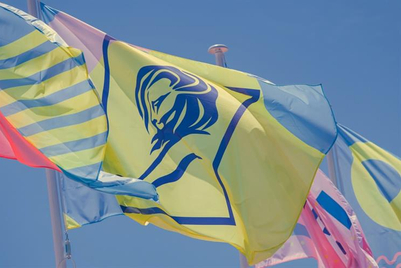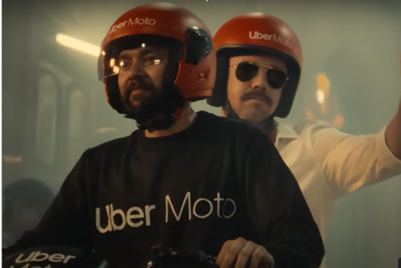The Lions Live (the online version of the Cannes Lions Festival of Creativity) saw a session by Ram Krishnan, global chief officer at PepsiCo. Krishnan spoke about how Covid-19 brought the world to a halt in 2020, and yet, it delivered five years of tech-centric revolution across industries and businesses.
Krishnan began the session by expressing his fascination for the trigger points in history that changed the entire consumer adoption of e-commerce as a channel. “You go through decades when nothing happens and then there are moments where decades happen in a very short period. We had personal computers and the internet which led to the acceleration of different business models. And then, there was the advent of the 2003 SARS outbreak in China and parts of Southeast Asia, which became an inflection point.”
Evolution of e-commerce
Krishnan believes that the pace at which the e-commerce ecosystem developed in China was strikingly different from that of the Western world. Back in the day, e-commerce was in its infancy and was more B2B. Alibaba, despite being in existence, too, was mostly focused on B2B e-commerce aimed at international markets. Krishnan said that the unfolding of the SARS event propelled Alibaba to introduce the C2C platform ‘Taobao’ in 2003. Soon after, the company followed it up with Alipay, a digital payment innovation that made the entire experience frictionless for consumers as compared to paying via credit cards.
Krishnan believes Alibaba also innovated when it came to product delivery – how fast the products could be fulfilled. “They set high expectations. Fast forward from then to now and they’re offering 30-minute delivery windows. All of this accelerated how much more accessible goods became for consumers. The e-commerce ecosystem exploded in China; in fact, it skipped a couple of generations and leapfrogged over its Western counterparts,” he said.
E-commerce at a crossroads
Speaking about where e-commerce finds itself today, Krishnan said, “We are now in the next digital normal in the 2020s. It’s not a shopping behaviour anymore, what with the Covid crisis. Our life has changed entirely.
He brought up a notion of ‘tech-celeration’, where technology has changed the entire gamut of consumers’ habits – how they live, work, connect with people, go to school, and how they buy and consume goods. Krishnan felt that when compared to the 2000s, the 24x7 culture has also become very pervasive; there isn’t a single moment people aren’t connected to a device.
He said, “Consumers in the US are spending 16 hours every day connected to the technology-social ecosystem. And because they are spending so much time on digital platforms, you get data on what exactly is their motivating factor. Why are they making certain decisions to consume this content versus something different?” Citing an example, he said, they were searching for ways to build immunity during the pandemic, and functional drinks ended up trending. Using this data, PepsiCo innovated in a short cycle to launch products with immunity benefits.” Hereon, the brand introduced Propel and Mountain Dew Rise, both of which offered enhanced immunity and energy.
Innovation and the way forward
Krishnan said that PepsiCo is rethinking the way it innovates. “Consumers expect brands will deliver uber personalised products, services and experiences. They’re looking for you to entertain and educate them,” he said. One of the things PepsiCo is working on is providing contextually relevant experiences using technology and data.
The new normal
“One of the questions we keep asking ourselves is, ‘Are we going to go back to the ‘normal’? If I chose to shop online, will I ever go back to the brick-and-mortar store?” he asked.
Krishnan said there’s no going back to the ‘normal’ as we know it; consumers are going to embrace online and offline worlds. However, the expectation is going to be higher on both channels.
Having said that, it doesn't mean that people are not going to go into stores, he said. It’s people’s expectations when they walk into physical stores that will be different. They will expect more curated experiences because brands have access to their digital shopping behaviour. Consumers now expect brands to nudge their shopping path towards the category they’re most interested in, and towards the brand that they’re most inclined to, versus wasting their time, he said.
The world of personalised shopping
“One of my favourite movies growing up was Minority Report, which was set in 2054. What was fascinating about it was the benevolent world where brands and consumers came together. The brands and retailers anticipated consumer needs, even before they were articulating them. Looking at the movie, one thought ‘Wow, that's probably not going to happen in my lifetime!’” Krishnan said.
However, a look at 2021 shows that a lot of what happened in the movie has become a reality. He believes we aren’t too far from a world when consumers walk into a retail store and are greeted by name with a curated assortment that is tailored for their personal needs.
The next 10 years
Krishnan anticipates three things to happen in the next 10 years:
1) Design by data: The democratisation of data, enable hyper-personalised product brand experiences with AI design will come to the fore.
2) Experience curation: Brands can expect more emphasis on consumers expectations in the virtual world. People might spend probably more time curating their digital avatars than their physical life. Curation will also be very different in the physical world – consumers might be alone watching a game or a concert but hanging out with their friends digitally in a virtual context.
3) Social powering the business organisation: The world will evolve to a future state where consumers are going to give feedback on what kind of product and brand experiences they expect, through social media channels. Further, employees will give feedback about what their expectations are from a company. Communities, too, will tell companies what products and jobs can add value to them.
Krishnan believes that the world order will transcend just social media. “I think the entire value chain’s construct of how we organise our products, where we make them, how you move, sell and market. It's no longer just about communicating, it’s about how we re-architect our entire business model by listening to the different stakeholders.
In closing, Krishnan said, “We used to say digital was a place or a thing. And digital is how we would describe our lives. Progress comes from experimentation. You need to push yourself to the edge where there are ideas that would scare the heck out of you. That's when you know you're leaping into the next normal.”




.jpg&h=334&w=500&q=100&v=20250320&c=1)
.jpg&h=334&w=500&q=100&v=20250320&c=1)



.jpg&h=334&w=500&q=100&v=20250320&c=1)



.jpg&h=334&w=500&q=100&v=20250320&c=1)








